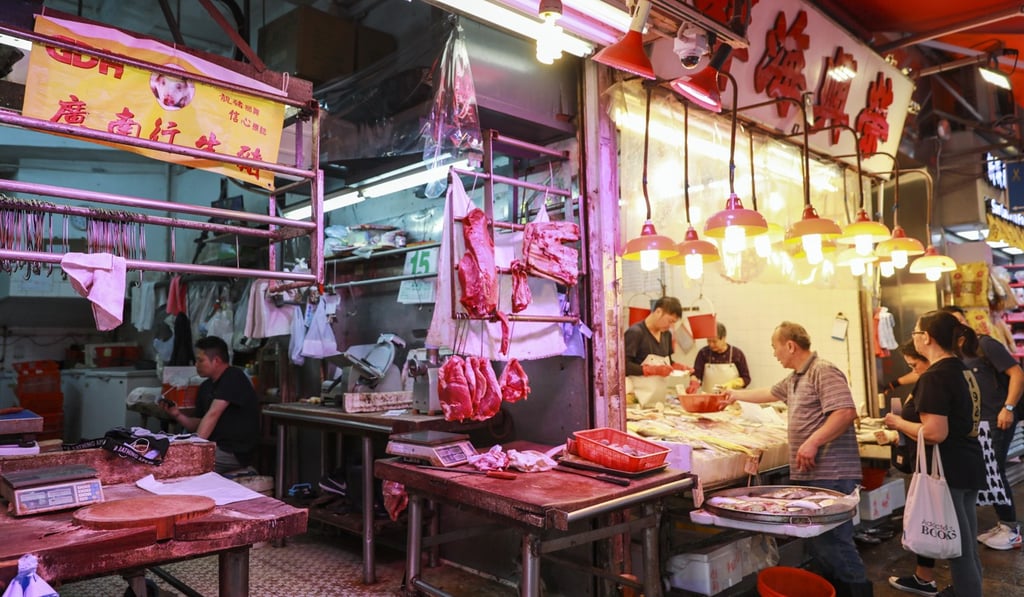Hong Kong pig farmers threaten to release their hogs at government headquarters if Tsuen Wan slaughterhouse is not reopened
- Farmers say closure of privately owned facility, which has not been affected by African swine fever, has left 1,000 pigs ‘stranded’ on farms
- The government says it will write to the slaughterhouse and take action if it finds the operators are in breach of their licence

Disgruntled pig farmers in Hong Kong have threatened to besiege government headquarters with their animals to pressure officials to take action against a privately owned slaughterhouse that has stopped operating amid a case of African swine fever.
The farmers complain that 1,000 pigs have been “stranded” on their farms.
They made the call with the city’s biggest abattoir, which is government-owned, shut for cleansing in light of an African swine fever case in a pig imported from mainland China. The private facility is also closed even though no pigs there were found to be infected.
Beef traders, meanwhile, also said their businesses had been hard hit and the city’s fresh beef and lamb supplies were also drying up after the city’s abattoirs had stopped operating.
In a meeting with representatives of local livestock farmers on Tuesday, officials promised to liaise with the private Tsuen Wan slaughterhouse. But the move failed to pacify the farmers, who said their farms had been “overwhelmed” by pigs.
